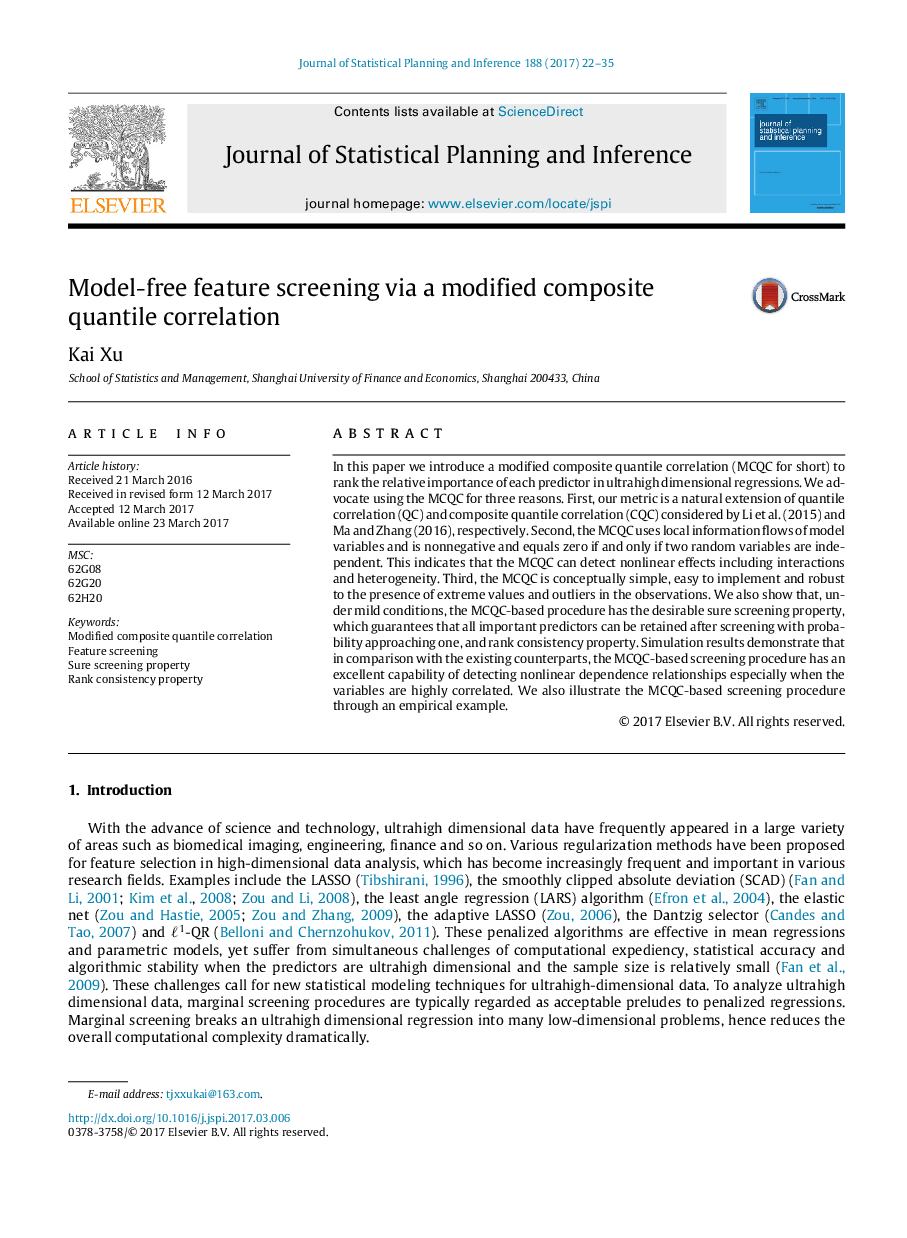| Article ID | Journal | Published Year | Pages | File Type |
|---|---|---|---|---|
| 5129541 | Journal of Statistical Planning and Inference | 2017 | 14 Pages |
â¢Each screening method targets a different aspect of dependence.â¢However, we here emphasize the effectiveness of the proposed method under the existence of outliers in that it uses local information flows of model variables and composite quantile information included in the response.
In this paper we introduce a modified composite quantile correlation (MCQC for short) to rank the relative importance of each predictor in ultrahigh dimensional regressions. We advocate using the MCQC for three reasons. First, our metric is a natural extension of quantile correlation (QC) and composite quantile correlation (CQC) considered by Li et al. (2015) and Ma and Zhang (2016), respectively. Second, the MCQC uses local information flows of model variables and is nonnegative and equals zero if and only if two random variables are independent. This indicates that the MCQC can detect nonlinear effects including interactions and heterogeneity. Third, the MCQC is conceptually simple, easy to implement and robust to the presence of extreme values and outliers in the observations. We also show that, under mild conditions, the MCQC-based procedure has the desirable sure screening property, which guarantees that all important predictors can be retained after screening with probability approaching one, and rank consistency property. Simulation results demonstrate that in comparison with the existing counterparts, the MCQC-based screening procedure has an excellent capability of detecting nonlinear dependence relationships especially when the variables are highly correlated. We also illustrate the MCQC-based screening procedure through an empirical example.
